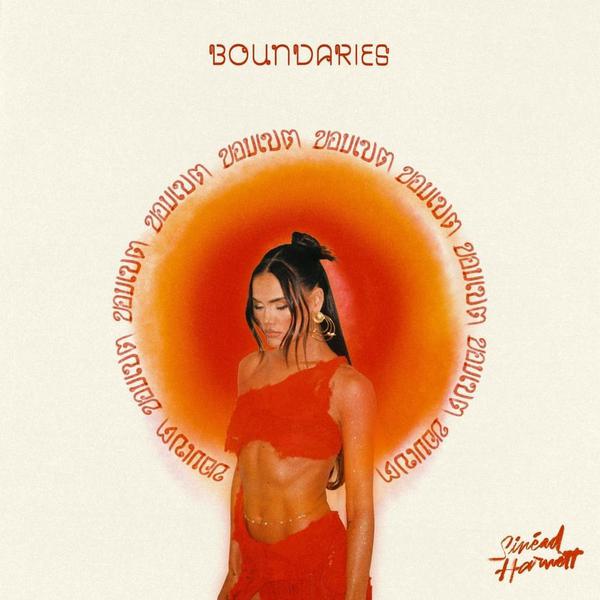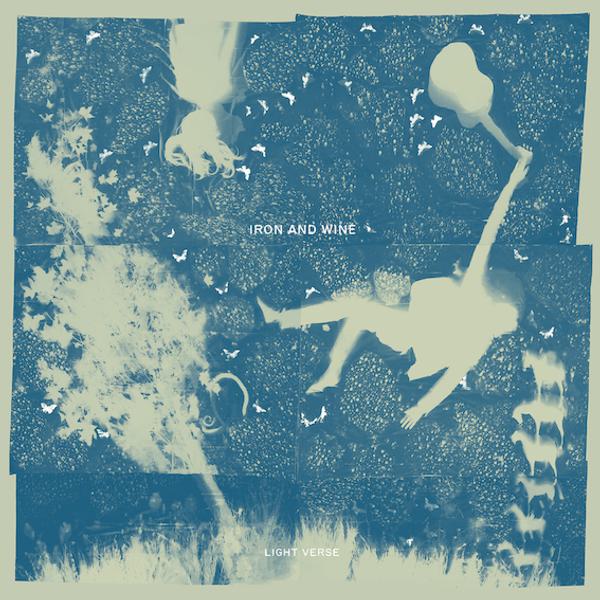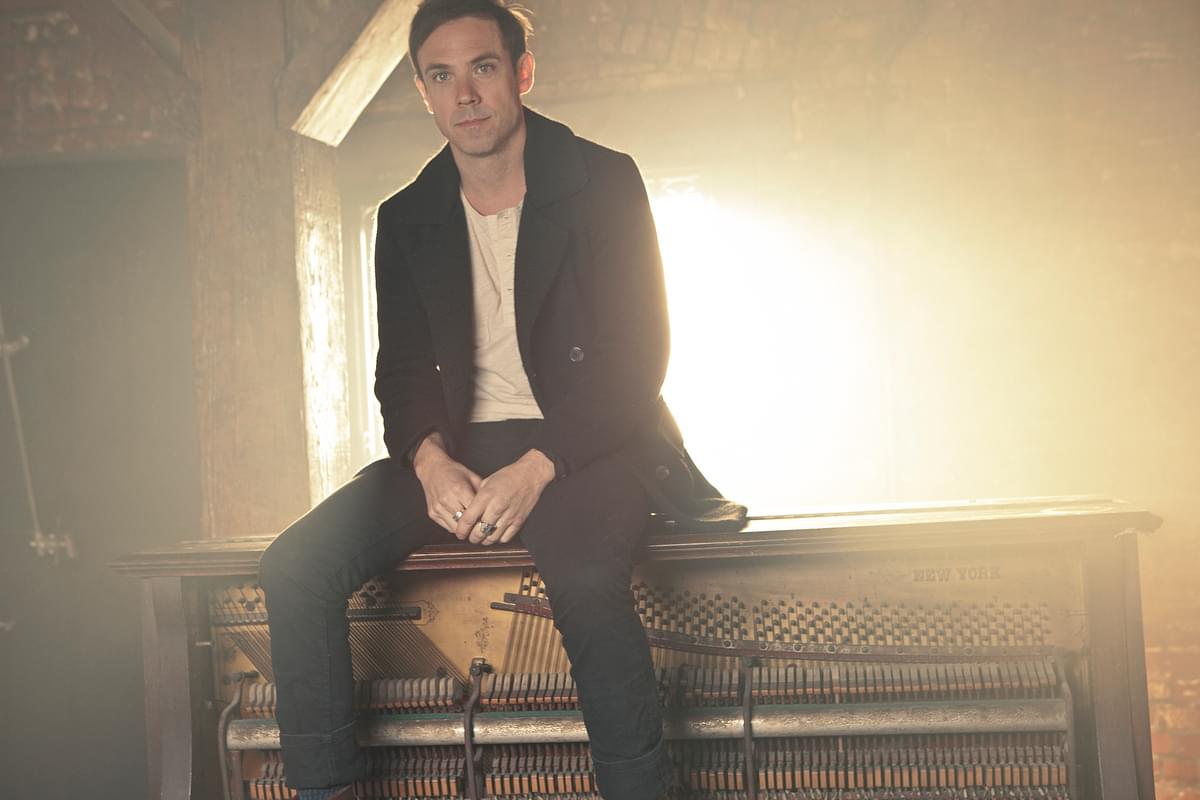
The grief and reckoning of The Airborne Toxic Event
Mikel Jollett reveals how the death of his father led to the creation of his most personal work to date
Held within his new memoir, Hollywood Park, and the accompanying album by his band The Airborne Toxic Event, Mikel Jollett stares down the most painful aspects of his past. He barely blinks as he reflects on the neglect and emotional abuse of his childhood, and the wars he waged and won to escape the life of self-annihilation that seemed pre-determined.
Held within his new memoir, Hollywood Park, and the accompanying album by his band The Airborne Toxic Event, Mikel Jollett stares down the most painful aspects of his past. He barely blinks as he reflects on the neglect and emotional abuse of his childhood, and the wars he waged and won to escape the life of self-annihilation that seemed pre-determined.
The project was conceived as a way of processing the loss of his father, arguably the most profoundly positive influence in his life. And it all started with Jollett turning to the one thing he had always depended on: songwriting.“My father had died, and I think the first thing I did was write a song. Music became what it was to me for all the years before I ever started the band: just a way of processing. Something about capturing it made it feel better. Writing a song makes it more bearable. I don't know why that's true, but I think that's been true for every rock and roll musician ever. There is a catharsis there. I didn't do it to make a record. There was no thought that I was ever gonna put it out.”
In writing these songs, Jollett found a desire to document the story of his father-son relationship; as a means of capturing the essence of the man he had lost. But trying to focus on that sole part of his history proved to be impossible, like tapping a well but only allowing a few drops to trickle out. Instead, Jollett began to look back on his life as a whole, capturing the entirety of the people and experiences that shaped him. “I would just get so into these characters, my dad before I was born, my own self as a child.”
Left in the infamous Synanon cult with his brother when he was just six months old, Jollett spent the first few years of his life in what was essentially an orphanage. When his mum finally came to rescue him and his older brother, the life that awaited them was little better. Marred by poverty, his mum's rotating cast of unstable boyfriends and compounded further by her narcissistic personality disorder, Jolletts childhood was one of crippling emotional and at times physical abuse. The one shining light was the reintroduction of his father who he eventually went to live with.
His dad became the steady hand on his shoulder, a constant source of support and reassurance who urged Jollett to learn from the mistakes he himself had made as a young man. It was this advice that freed Jollett to forge his own path, and steered him away from the youth of petty crime and addiction that had plagued his father.

A high school crush sparked within him a love of literature, which went on to shape his further education. Despite being a promising long distance runner, a series of injuries curtailed any dreams of taking it further, with Jollett instead throwing himself into his writing.
Broken, but unbeaten he carved out a future for himself; securing a scholarship to Stanford, then moving on to find work as a music journalist before ultimately finding success with his band that allowed him to travel the world.
Writing Hollywood Park became a way for him to revisit his youth and live it again with a new lens. It also led to a revelation about the songs he had been writing since his father passed away. “About halfway through, I realised it should be the soundtrack. I had a talk with the band about it and that's when we agreed to make it all sort of one project and at that point there started to be a dialogue between the two.” As intertwined as they are, Jollett was keen to keep them as two separate entities. “I wanted them each to stand on their own too. I didn't want anyone to feel like they needed to know my band to read the book. I set out to write a piece of literature and to tell a story as well as I could.”
Jollett does not define himself too rigidly when asked as to whether his first instinct is to pick up a pen, or a guitar. Instead he sees himself neither as solely being a musician or a writer. “I don't know if these distinctions matter that much. I like Tom Waits and I like Leonard Cohen; and I like Maya Angelou and Toni Morrison and Philip Roth, and I live in those worlds simultaneously.” After a brief pause he continues: “When I was in college I remember people asking me what I was gonna do with my life, and I always said I was gonna write and play music. And that is all I did. This is the once in a lifetime moment when I have tried to combine it all as one project. I have put together a lifetime of songwriting and literary background in a way that I thought was unique to my own experience, and different from other artists.”
The circumstances around the creation of their new album also led to a new sense of freedom for The Airborne Toxic Event. Jollett cast off expectations, focusing on being true to himself and what he wanted to create. “My fucking life had just fallen apart. And if you ever go through something really hard in your life that it breaks you apart to a point where you just don't give a shit, you just do the thing that you're gonna do.”
“I felt a lot of pressure for many years to try and be some sort of hit factory.”
This new set of songs were written as much for himself as for anyone else. “I felt a lot of pressure for many years to try and be some sort of hit factory.” Whether it was trying to keep a label happy or merely an attempt to try and increase their reach Jollett felt a weighty expectation to create three minute, radio friendly hits, something that his band's last two records made moves towards. However this time around was markedly different as he explains “This record was too important to think about it like that. None of the people I admire made easy shit. You're trying to make something real and visceral so that was always the goal.” The resulting album is a bombastic rock record, peppered with a guttural defiance that nestles in its rough edges. The songs are like unpolished gems, as Jolletts voice reaches breaking point atop mountainous guitar lines. Hollywood Park also finds The Airborne Toxic Event adopt the same carefree attitude to genre as on their debut as they flirt with country rhythms on “True.”, delve into gothic shades of Post-Punk on “Come On Out” and find redemption in the whispered folk of “Carry Me”.
Hollywood Park reveals Jollets long standing love affair and dependency on music. There are descriptions of lonely nights soundtracked by The Cure and The Smiths, and countless runs in the park with headphones blaring as he sought solace in the words of those he felt understood him better than himself. These formative musical experiences echo through the new record, seeping into its core and revealing themselves in guitar lines reminiscent of Robert Smith or the new wave leanings of Depeche Mode.
Instead of shying away from their influences, The Airborne Toxic Event embraced them, falling back in love with the reason they started the band in the first place. As Jollett explains, “our attitude about this record was…here are four guys who know rock and roll really well. Let's just make a record that feels like the music we love and not worry about trying to guess what we think other people might like.”
Jollett seems to have reconnected with the power of music, finding a renewed appreciation in the way in which the bands he listened to as a kid reached out from his speakers to rescue him, however momentarily, from his reality. It is something he wants to capture in his own work. “All I care about is getting it right on the page so that I finish a song and I'm like, ‘that's how that felt.’ I'm just going into it trying to capture my own experience without any sense of dumbing it down.”
While working as a music writer, Jollett interviewed David Bowie and Robert Smith. He would probe his interviewees in an attempt to get them to give him a glimpse into their world, or to provide some sort of insight into the secret of making a connection. Their advice, coupled with his own hard-won experience, has given a unique shape to his songwriting process. “It’s very much ingrained in my head, the idea of letting your own voice and your own specific orientation shine through. Show contradictions and show strangeness. There's something about mystery which I feel is very important in writing and songwriting. You present the mysteries whole; you don't dumb them down. You put them in a compelling story but you let your brain be exactly as complex and mysterious and interesting as it can be and in doing so people recognise their own complexity and their own mysteries.”
The Airborne Toxic Event have always forged their own path, flying in the face of convention and powering past detractors who saw them as a hollow rehashing of what was happening around them. A scathing Pitchfork review of their debut painted them as no more than a poor man's Arcade Fire or Interpol, something that is as untrue now as it was then. Their songs often revolve sound narrative structures as opposed to traditional song arcs, focusing on a mirage of themes. If anything, the group has doubled down on this approach in Hollywood Park, where Jolletts inner complexities are captured with devastating effect. This is perhaps best illustrated on the standout track “Come On Out”.
Providing further insight into the meaning of the song Jollett explains that “‘Come On Out’ is sad. It’s a song about child abuse that dwells in anger and self pity alongside a confident swagger. You could just write a song about child abuse that's sad. But there's a lot more going on because we’re human beings and it’s not just what happened but how we survived it that's important.” Jollett ties his writing style back to the wisdom imparted by his heroes; (how David Bowie told him to “embrace the contradictions”, and Robert Smith' urged him to “show them how weird you are.”) It is a form of songwriting that invites the listener in, encouraging you to share in Jolletts pain. The themes and emotions wrapped up in Hollywood Park can be tough to bear witness to, but there is an undercurrent of resilient hope that is inescapable. As dark as things get, the myriad of feelings Jollett conveys in the space of a single track always leaves scope for you to write your own ending.
Jollett provides a window for the outside world to share in, and learn from. Utilising his personal history he provides a place of escape, or comfort, or just some semblance of understanding. “Something about capturing all those things is exciting to us to hear because you feel seen. Seeing all the complex humanity and anger coming out is exciting. That's why a record or a good book is a gift because you are capturing something about your vitality and your lived experience. You put it in a song or a book and you can give it to someone else who then receives it like a gift because capturing that vitality makes you seem more alive.”
The salvation he finds in music and literature is as vital as it was when he was a kid hiding in his room with only The Cure for company. “I listen to some of my peers' music and I'm just like, ‘that was tremendous’,” he shares. It is at this point a massive grin crosses Jollets face and his passion is palpable. He launches into a tirade of artists and records that inspire him. “Titus Andronicus - The Monitor...that's the best punk rock record in two decades.” And his favourite song from that album? ““The Battle of Hampton Roads"; a song about the civil war, that becomes a song about touring in a rock band, that becomes a song about rebelling against his father, which becomes a song about self-loathing. Its existential crisis, its national crisis, its historical drama, its psychological drama, it's great punk rock.” He barely takes a breath before continuing “How do you not find that inspiring as an artist? Do you think Patrick Stickles was sitting there thinking “how do I write a pop song?” Or “how do I talk down to my reader?” No. Artists I respect make tough choices. It’s brilliant because it's so specific to him. You can't love rock and roll and not love that record.” If The Monitor wasn’t already one of my all-time favourite records I would have been putting it on to see just what made it so special the minute we hung up.
You don't need to have experienced the same things as Jollett to relate to his story. Hollywood Park acts as fragments of a shattered mirror, reflecting small parts of ourselves. Sewn into his story we find stitches of our own lives, the ways in which we have been hurt and the damage we can cause others. Jollett has been shaped by, but not defined by his past and Hollywood Park, both record and book serve as beacons of hope. In dropping his mask, he instils the confidence in readers and fans to lower their own.
“All of us who grow up as kids of abuse or neglect learn to perform. We learnt that the world is not really a friendly place for us to put our true selves so instead we find a way to perform on a day to day basis."
Jollets backstory and life experiences left him projecting one image to the world while keeping his true self hidden. “All of us who grow up as kids of abuse or neglect learn to perform. We learnt that the world is not really a friendly place for us to put our true selves so instead we find a way to perform on a day to day basis. There's this great irony about music, you become a really good performer because you are good at sensing how to hold a room because you've had to do it your whole life.”
But it has ultimately through his music that Jollett has found his own truth. “If you write songs that are about these universal ideas there is an unmasking of the self. You take the performance off and in a strange way the stage is the one place you don't have to perform. For that two hours you're just as tortured, screwed up, sad, and angry as you actually are in real life. It's an escape from the roles that you have to play all day long in your life. And then people applaud you for it, they are thankful for the fact that you are able to capture something for them”
Hollywood Park is, as Jollett describes it, a story about the righteous anger of children. But it is as much about parenting and the impacts our actions can have on the lives of others; the devastating shadows we can cast into future years or decades.
Growing up, Jollett and his brother were often left confused as to the role of men and the expectations placed upon them. Having a single mother who often made poor choices in partners made it difficult to extract for themselves a positive image of masculinity. As Jollett discusses “I didn't use the words toxic masculinity in the book because I was trying to talk from the perspective of being ten years old, but that's what I was talking about.We knew about the world of women...but we were really fascinated by this world of men. We wanted to be race car drivers and cowboys and the most mascualine things because we were compensating for the lack of men being around.”
“It’s a strong feeling, it’s the reason teens join gangs and the reason people go off and join armies and die in wars. At a certain age you want to be around other boys and other men. You want to portray your masculinity to one another.” Sadly, the men that were often present in his life further clouded his view. “My second stepdad was the dominant one and he was gonna get in my face and he was gonna show my mom who’s boss and show me who’s boss and all that kind of stuff.” It was at the hands of this man that Jollett suffered the physical abuse documented in the memoir and song “Come On Out”. The emotional impact he caused was equally severe as his negative traits stalked Jollett into adulthood. “I dont think it's as simple as just rejecting everything about the people who abuse you. You also identify with the abuser, and that’s a fucking mind twister. Every time he left it would just destroy our house and the whole thing would fall apart. You see the power that gives and so somewhere in your mind you think ‘oh that's a way to get power in a relationship’. You can leave or you can threaten to leave, and I think I learned that lesson unfortunately from him. It took me a long time to realise that had happened and then have to face it and go through the work of deciding I want to become someone who is better than that and it's tough.”
Experiencing first-hand the devastating effect of someone attempting to establish themselves as the alpha male in a household made Jollett re-evaluate what it really is to be a man, and the definition of toughness. “When you talk about toughness, I think that toxic masculinity's definition of toughness is you can beat someone up or you don't need to care about what people think or some sort of shit. That isn't tough, it's not that hard. Toughness is facing the things about yourself you don't like. Toughness is deciding to change those things and sitting with how shitty you feel about it. Toughness is admitting those things to yourself because other people are more important. The idea of changing and facing things and being someone who first and foremost is gonna focus primarily on how to be best for your family is a really positive idea about what it means to be masculine.”

Luckily, in direct contrast to his second stepdad Jollett describes his father as being “very much ahead of his time” when it came to the role of a man in the household. “In my dad’s case he was affectionate and masculine, he was sensitive, he was wise. He liked old trucks and football and he was fine quitting his job and letting his wife work so that he could take care of me and my brother after school. He cooked dinner, he did dishes, and then he’d watch tv and scream about the Chargers.”
Jollett is now married with two young kids of his own. This has inevitably shone a harsh spotlight on his own damaging childhood, the unfairness he was subjected to and how it ultimately shaped his life. It has also given him a distinct set of hopes for his own children growing up. “The running joke my wife and I have is we want our kids to be successful in life - and however they define success is up to them - and for it not to have been a surprise. We want to set them up for it, for them to be emotionally well adjusted, safe, well-educated children from a loving home. That's all we are after.” When talking about his approach to parenting Jollett explains “I feel like I got a playbook from my own dad. He was great with us.” Then to expand on just what this means in practice he is candid is stating “love them up and take joy in their life, and make sure they know that you like them as well as love them.”
The transformation from an emotionally bruised twenty-something to a dedicated family man has been something which Jollett has had to fight and work hard for. “It takes commitment to place the family at the centre of your life, especially if you are an artist. You can't go too far down a rabbit hole because you gotta go upstairs and be dad, you can't go on the road for a year cause you gotta be around your kid.”
It doesn't just have to do with making time for the family though. It has also required Jollett to work at reversing the traits of a lifetime to provide a very different future for the next generation he is bringing up. “There's a commitment to your relationship, particularly if you're someone who's had a hard time with your relationships. In my twenties with relationships something would happen, and I'd be like “I’m out”, and you can't do that. Now I have to find a new way to deal with whatever the problem is, whatever is making me angry or making me scared.”
The shift from being a victim to having to take accountability for some of the negative aspects of his personality has also required some adjustment. “That one is tough because I think that for those of us who come from particular environments when we were hurt as kids...you always want to feel like it's not your fault because there is such a wealth of experiences you have where you were fucked with. Then when you become an adult you have to own the things that can be your fault. Now I'm the husband and dad and I need to be humble about my shortcomings.”
The intimidating project of writing both a memoir and accompanying record has undoubtedly provided at least some catharsis for Jollett. Beyond memorializing his father, it has worked to clarify his own understanding of what he had to overcome. But for a man who, when letting his first recordings out into the world feared the personal exposure it would bring, it is an incredible act of bravery to lay himself so bare. It’s something that didn’t seem to cross his mind until it was too late to turn back. Jollett explains how he experienced “blind crushing fear about the book coming out.”
Ultimately his artistic drive to create overpowered his insecurities. “I knew that by writing the book you gotta take chances. Readers are not stupid they can sense bullshit so you gotta be honest. Everyone knows there are certain things that are hard to write about, certain things that are hard to admit, and if you probe those things then the reader appreciates that you've done that because they feel like they have been given an honest reckoning.” Being so tied up in the nuts and bolts of writing a book almost made Jollett forget that he was the subject. “Most of my concerns were literary. It wasn't until a few months before it came out that it occurred to me...a lot of people were about to read some really personal shit about me. It didn't even cross my mind. It was terrifying.”
And how does he feel now that the memoir is published? “ There's something freeing about it. So many friends and family and people through the years who I've known who have reached out and there’s this sense of the mask is off, and it's kinda nice. I feel like when I talk people know where I’m coming from because they've read the book.”
It all comes back to the ways in which Jollett has felt he has had to hide his true self over the years. Building barricades, periodically removing a brick or two with the release of a new song or album to provide an insight to his inner thoughts. “The mask that I once wore made it seem like my life had been a lot easier; that my perspective wasn’t hard won or that I didn't understand all the ways in which I had failed others. You take the mask off and you realise that you don't have that much reason to hate yourself and nobody really hates you. These are all just the fears that made you wear the mask in the first place. It’s sort of freeing to feel like I don’t have to act as much.”
Get the Best Fit take on the week in music direct to your inbox every Friday

Sega Bodega
Dennis
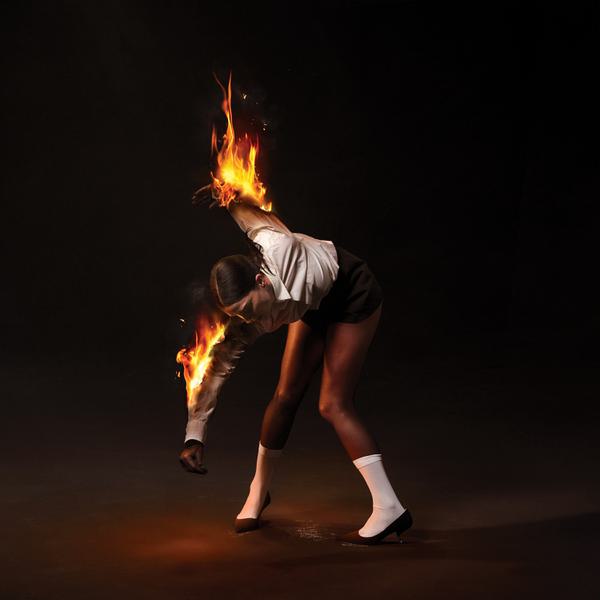
St. Vincent
All Born Screaming
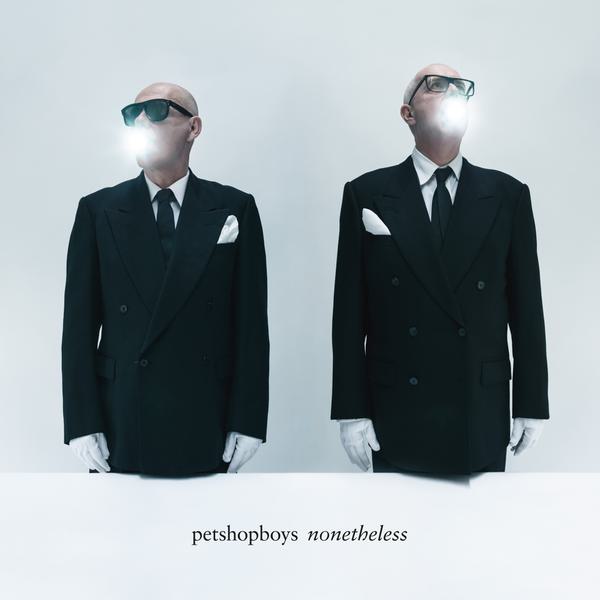
Pet Shop Boys
Nonetheless
